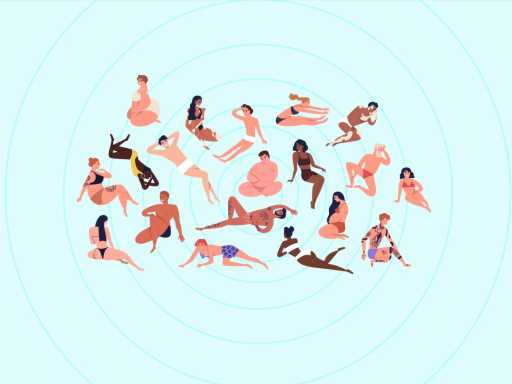When we talk about orgasms, it covers a wide range of conversations. After all, orgasms manifest differently for everyone — they may feel different, come through different sensations, last for different durations and otherwise affect us in all kinds of different ways. In fact, they may even derive from different pleasure points.
There’s a plethora of possible orgasms a person may be able to achieve, if that is indeed their intention. It’s important to note, however, that though a variety of orgasms exist, they’re neither feasible for nor necessarily appealing to all people — and that’s OK. Here, we’ll be focusing on orgasms for people who have a vagina and clitoris — not all of whom identify as women.
“If you don’t have certain types of orgasms, it doesn’t make you less capable of pleasure, and it doesn’t make you less of a woman,” Gigi Engle, certified sex coach, sex educator with The Alexander Institute and pleasure professional at O.School, tells SheKnows. “People experience pleasure and sexuality in such a variety and myriad of ways; whatever brings you pleasure is the most valid. It’s just important to have information so you have the tools you want or need for however you choose to explore your own sexuality… Because let’s be clear: Your body is amazing.”
Engle adds that putting pressure on yourself to achieve orgasm may actually have the opposite effect. Your narrative should focus on experiencing sexual pleasure in and of itself as opposed to reaching orgasm, which she calls a “happy byproduct.”
Regardless of how you choose to explore your sexuality, Engle reiterates a common misconception that achieving orgasm denotes the culmination of a sexual experience — that the goal of sex is always to orgasm and, if it doesn’t happen, the sexual experience was incomplete or invalid or that you or your partner didn’t perform well. “Sex should be about bringing your partner pleasure, bringing yourself pleasure and enjoying that intimate experience as opposed to seeing it as goal-oriented,” she explains.
Certified sexologist Barbara Carrellas adds that if you do want more or different orgasms, you should practice alone first so you can effectively communicate with your partner.
“Your partner is not responsible for your orgasms — you are,” she says. “The better you know your body, the more you’ll be able to bring yourself to orgasm with their help… Just don’t try so hard. Release your expectations about what an orgasm is ‘supposed’ to be like. Release your assumptions about how an orgasm happens. If it feels good, do it; if it doesn’t feel good, stop. If it works for you, do it; if it doesn’t, try something else. There is no ‘normal.’ Everything is ‘normal.’”
And most of all, remember that these are only possibilities to explore if you’re curious and comfortable. To each their own, always. With that said, here are six little-known potential byproducts of sexual pleasure you may or may not want to take a crack at some time.
A version of this story was published October 2018.
Source: Read Full Article
